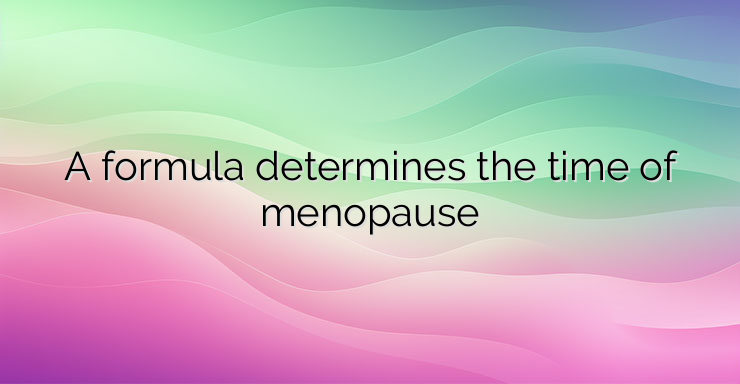Iranian scientists have compiled a formula that can be used to calculate the estimated age at which a woman will enter menopause to an accuracy of three months on average. The formula works with anti-Mullerian hormone (AMH) values. The AMH hormone controls the development of the follicles in the ovaries, in which the eggs mature. By knowing the age at which they will enter menopause, women will be aware of when biologically they can postpone starting a family and control their plans without regretting later. The study proves to be particularly useful for those women in whom menopause occurs early. The idea of measuring the level of anti-Müllerian hormone to determine the timing of a woman’s fertility is not new. Hormone levels are used to determine a woman’s ovarian reserve, which is used to judge whether menopause is about to occur. For the first time now, Iranian doctors have discovered a formula to calculate the time of onset of menopause in young women in the future. At the European Society of Human Reproduction and Embryology conference in Rome, they demonstrated the mathematical model using sample values of anti-Müllerian hormone. The study included 266 women between the ages of 20 and 49, who for 12 years at periods of three years, blood tests to measure the hormone and medical examinations are carried out. For 63 women in the study who entered menopause, the assumed age and the actual age turned out to be the same. When predicting age, a discrepancy of 4 months was found on average, the longest difference was 3 years. Study leader Dr. Fahime Ramezani Terani of Tehran University of Medical Sciences, Iran, explains that the formula could help doctors more realistically determine reproductive status in assisted reproductive technologies many years before a woman becomes pregnant. entered menopause. According to doctors in the UK, the use of anti-Müllerian hormone as a leading indicator for determining a woman’s fertility period will be beneficial, but there are also concerns that women may take the results of the formula as insurance and further delay the creation of a family. It is a fact that in recent years women have been giving birth later and later. According to scientists, other medical factors such as fallopian tube patency and health conditions can affect a woman’s fertility, which can negatively affect the ovarian reserve and hence the time of its depletion, which the formula cannot predict. On the other hand, the information from the calculation will give women the opportunity to orient themselves until when they can postpone the birth of a child, because of their career or in search of the «right husband». Experts do not fail to point out that women should also be aware that in the years before menopause, conception is much more difficult, the information,which will only be of benefit to specialists from in vitro clinics. Experts insist that the precision of the formula should be tested on more women before it is adopted in practice.


Leave a Reply